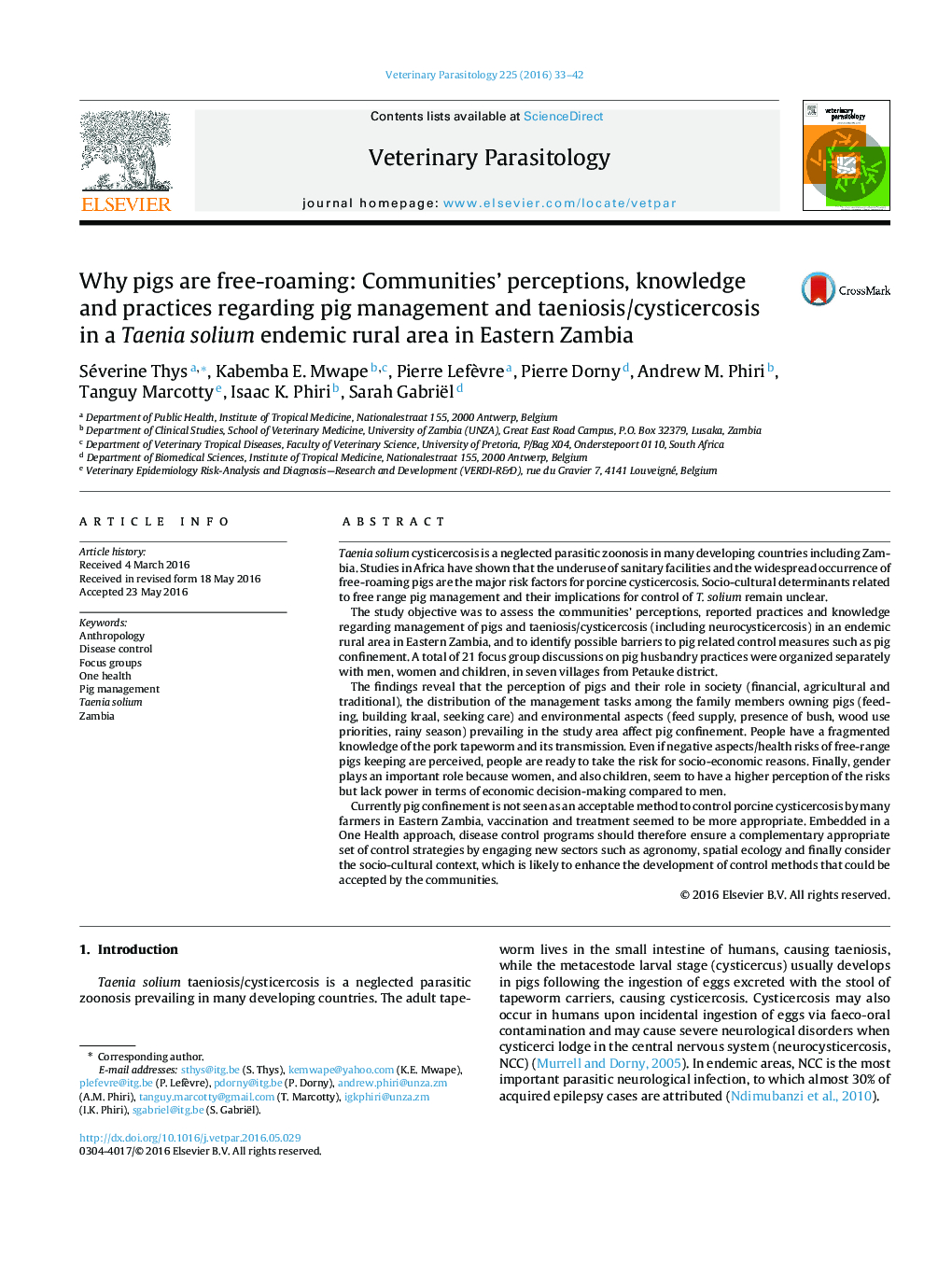| کد مقاله | کد نشریه | سال انتشار | مقاله انگلیسی | نسخه تمام متن |
|---|---|---|---|---|
| 5802115 | 1555651 | 2016 | 10 صفحه PDF | دانلود رایگان |

- Free-roaming is the commonest pig management system in resource poor Eastern Zambia.
- Health risks of free-range pig keeping are less important than the economic gain.
- Solutions for pig feeding must be addressed.
- Gender is a spectrum to understand the complexity in term of health decision-making.
- The need to overcome disjunctions between biomedicine and social research is dire.
Taenia solium cysticercosis is a neglected parasitic zoonosis in many developing countries including Zambia. Studies in Africa have shown that the underuse of sanitary facilities and the widespread occurrence of free-roaming pigs are the major risk factors for porcine cysticercosis. Socio-cultural determinants related to free range pig management and their implications for control of T. solium remain unclear.The study objective was to assess the communities' perceptions, reported practices and knowledge regarding management of pigs and taeniosis/cysticercosis (including neurocysticercosis) in an endemic rural area in Eastern Zambia, and to identify possible barriers to pig related control measures such as pig confinement. A total of 21 focus group discussions on pig husbandry practices were organized separately with men, women and children, in seven villages from Petauke district.The findings reveal that the perception of pigs and their role in society (financial, agricultural and traditional), the distribution of the management tasks among the family members owning pigs (feeding, building kraal, seeking care) and environmental aspects (feed supply, presence of bush, wood use priorities, rainy season) prevailing in the study area affect pig confinement. People have a fragmented knowledge of the pork tapeworm and its transmission. Even if negative aspects/health risks of free-range pigs keeping are perceived, people are ready to take the risk for socio-economic reasons. Finally, gender plays an important role because women, and also children, seem to have a higher perception of the risks but lack power in terms of economic decision-making compared to men.Currently pig confinement is not seen as an acceptable method to control porcine cysticercosis by many farmers in Eastern Zambia, vaccination and treatment seemed to be more appropriate. Embedded in a One Health approach, disease control programs should therefore ensure a complementary appropriate set of control strategies by engaging new sectors such as agronomy, spatial ecology and finally consider the socio-cultural context, which is likely to enhance the development of control methods that could be accepted by the communities.
Journal: Veterinary Parasitology - Volume 225, 30 July 2016, Pages 33-42